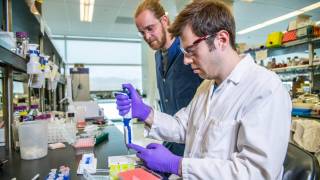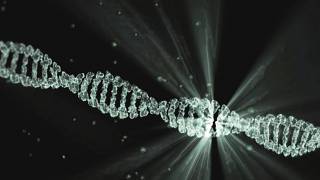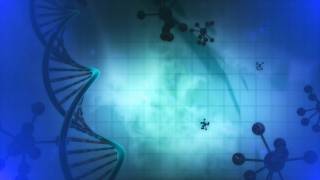Genital Herpes Risk Reportedly Reduced with Vaginal Gel

According to recent research, women who frequently used a preventive vaginal gel significantly reduced their risk of acquiring genital herpes.
This study reanalyzed data collected in a previous study, specifically looking at the subgroup of women that adhered to daily usage of the Tenofovir gel, and their rate of HSV-2 acquisition.
Tenofovir, a nucleotide reverse transcriptase inhibitor, is approved in its oral formulation for the treatment of human immunodeficiency virus (HIV) infection and Hepatitis B.
There is no FDA approved vaginal preparation on the market.
The 2015 study of experimental tenofovir gel was designed to evaluate the drug’s efficacy on HIV transmission.
>>Order private lab tests here<<
The evaluation of its use for HSV2 was a secondary analysis and the February 2019 study was a reanalysis of a narrow subgroup from the 2015 New England Journal of Medicine report.
Pericoital application of a topical vaginal-gel formulation of tenofovir was shown in one study to reduce HIV acquisition.
These researchers examined the impact on the pericoital use of tenofovir (TFV) 1% gel on preventing Herpes Simplex Virus Type-2 (HSV-2) in women.
Of the 566 HSV-2-negative women participants, the study reported that 1% gel was associated with a 40 percent reduction of HSV-2 acquisition.
Study author Jeanne Marrazzo, M.D., director of the Division of Infectious Diseases at the University of Alabama at Birmingham, said in a press release, “A product that protects against HSV-2 could have an important public health impact.”
This study reported over a follow-up period of 501 person-years, 92 incident cases of HSV-2 acquisition occurred: 77 were in women with no TFV detected in plasma, and 15 occurred in women with TFV detected in plasma.
TFV detection in plasma was associated with a trend toward a reduced risk of HSV-2 seroconversion and risk-adjusted for the site, age, having more than 2 male sex partners in the past 3 months, use of hormonal contraception, having anal sex in the past 3 months, and HIV status.
But, upon a full statistical review, this study’s risk reduction may be less substantive.
There are no randomized double-blind trials of vaginal tenofovir gel for HSV2 transmission which would be the best standard of measuring efficacy.
This is important research since approximately 16 percent of Americans ages 14 to 49 have already been infected with genital herpes, says the Centers for Disease Control and Prevention (CDC). And, HSV-2 infections are the most common cause of genital herpes.
About 85 percent of genital herpes is undiagnosed and unrecognized.
Dr. Marrazzo also said, “Women are especially susceptible to infection because it is more easily transmitted from an infected man to his female sex partner than vice versa.”
This new study was conducted through a secondary analysis of data from the Vaginal and Oral Interventions to Control the Epidemic (VOICE) study, which was published in 2015.
The recent study findings also align with the results of CAPRISA 004, a previous tenofovir gel study on HSV-2 acquisition reduction, which was published in the New England Journal of Medicine.
The CAPRISA 004 study tested gel application strictly within 12 hours before and after vaginal intercourse.
“While both studies focus on the same product, our (new) study is distinct in various ways, such as the emphasis on daily usage,” Dr. Marrazzo said.
The study authors concluded saying, “our data support further study of tenofovir as a potential means of slowing the HSV-2 epidemic.”
"We don't have a cure for HSV-2, and we don't have a genital herpes vaccine."
Which means, the tenofovir gel could offer women a prevention option in the short term.
Recent herpes simplex virus news articles:
- The results from a recent clinical trial led to a label expansion for an adult antiviral for the treatment of HSV. Based on this study’s data, newborn infants up to 3 months of age, who are infected with HSV, can now be treated with Acyclovir.
- There are only a few herpes vaccine candidates currently in clinical trials, but these vaccine candidates do not appear close to a commercial launch in the USA. HSV vaccine candidates include, but are not limited to, Genocea Biosciences GEN-003 therapeutic vaccine candidate, and Vical’s VCL-HB01.
The CDC does not recommend herpes testing for people without symptoms. This is because diagnosing genital herpes in someone without symptoms has not shown any change in their sexual behavior nor has it stopped the virus from spreading.
But, the CDC recommends herpes testing for people who have genital symptoms for herpes to confirm that they are infected.
Moreover, if you have questions related to herpes, you should speak with a healthcare provider.
Our Trust Standards: Medical Advisory Committee
- An antiviral gel may prevent genital herpes in women
- Oral and Vaginal Tenofovir for Genital Herpes Simplex Virus Type 2 Shedding in Immunocompetent Women
- Tenofovir Gel for the Prevention of Herpes Simplex Virus Type 2 Infection
- Safety and Effectiveness of Tenofovir Gel in the Prevention of Human Immunodeficiency Virus (HIV-1) Infection in Women
- Tenofovir Gel for Prevention of Herpes Simplex Virus Type 2 Acquisition: Findings From the VOICE Trial
- TRIALS OF TENOFOVIR-BASED PREVENTION METHODS: AT A GLANCE

























